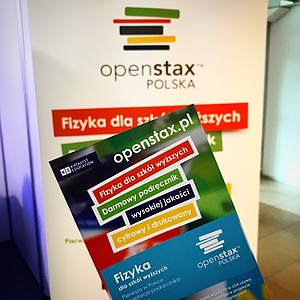9/20/2017

HOUSTON -- (Sept. 20, 2017) -- Rice University-based nonprofit OpenStax is partnering with Katalyst Education to bring free, peer-reviewed, openly licensed textbooks to Poland as part of a new effort to internationalize OpenStax's free open textbook model.
Katalyst Education is a Polish organization that aims to facilitate fair and equal access for all students in Poland by developing digital education tools and providing services to enable their optimal use. Katalyst Education and OpenStax will work together to translate OpenStax texts into Polish and investigate the best ways to introduce them to Polish universities, instructors and students.
“The translation of our books into a foreign language is a significant milestone for us,” said Daniel Williamson, OpenStax managing director. “Although we’re seeing use of OpenStax in countries around the world, our books are currently only accessible to English speakers. We’re excited to begin the process of removing that barrier.”
According to Katalyst Education, Polish students face some of the same accessibility challenges as American students: The prohibitive cost of textbooks and private tutors can make it difficult for low-income students to get the same quality of education as their peers. Beginning with OpenStax University Physics, Katalyst Education is not only translating the text into Polish but also modifying examples and case studies within the text to provide a Polish context.
OpenStax and Katalyst Education will begin their initiative by visiting Polish academic conferences and communicating with academic centers to determine the best ways to encourage adoption of the textbooks and meet the needs of Polish students.
“Poland’s academic community is relatively small -- for example, there are about 70 Polish institutions that have physics programs appropriate for this textbook,” said Christopher Sweeney, managing director at Katalyst Education. “This gives us an opportunity to make a powerful impact. Once our project builds momentum, we hope to truly eliminate instances where students lack access to core learning resources.”
The project is also interested in exploring the benefits of digital technology on learning outcomes and information retention. Katalyst Education believes that Polish students can benefit from repeated exposure to educational materials at a pace of their own choosing, a technique that can be enabled by digital open educational resources like OpenStax texts.
“High-quality open educational resources like OpenStax have massive potential to help level the playing field for Polish students,” Sweeney said. “We’re excited to finalize the adaptation process and bring new, accessible resources to Poland.”
OpenStax and Katalyst Education also collaborated to develop the technical infrastructure required to efficiently translate University Physics, laying the groundwork and developing the processes for other organizations interested in translating OpenStax textbooks.
Read more about Katalyst Education at http://katalysteducation.org/en/home-en/.
OpenStax is a nonprofit initiative of Rice University and is made possible by the support of the Bill & Melinda Gates Foundation, Ann and John Doerr, the Laura and John Arnold Foundation, the William and Flora Hewlett Foundation, the 20 Million Minds Foundation, the Maxfield Foundation, the Calvin K. Kanzanjian Foundation and the Leon Lowenstein Foundation. For more information, visit http://openstax.org.
